Things to do in Hai Phong, Hai Phong tours
Hai Phong is, in many visitors’ opinion, the ‘real’ Vietnam and reminds them of Hanoi, Vietnam’s capital many years back and only about two and a half hours away by bus. Hai Phong is also known as a tourist hub and features good hydrofoil and ferry links to Halong Bay, Cat Ba Island and many popular islets nearby. In the past it was an important international seaport and nowadays serves as the country’s fastest-developing industrial city. Still, it has its share of attractions, such as Du Hang Buddhist pagoda, Nghe Temple, Hang Kenh Communal House and the French influenced Municipal Theatre. The popular Do Son Beach is only 20km from Hai Phong. It is a well-liked resort town by domestic tourists, many of whom come to watch the choi trau (Do Son Buffalo-Fighting Festival) which draws a large crowd of no less than 25,000 spectators each year.
Bao Dai Villa was the summer palace of Bao Dai, the Vietnam’s last king. Located on top of Vung Hill, the villa was original built in 1928 by the French Governor-General of Indochina who later in 1949 offered it to Bao Dai. The emperor frequently used the villa when he visited this part of Vietnam, especially during summer time. Nowadays the villa is converted for tourism purposes, guests can enjoy not only the same beautiful views of Do Son Peninsula as the last emperor but also admire the vintage royal family photos as well in their living quarters. One of its main attractions is Bao Dai’s throne.
Opening Hours: All year round
Location: On Vung Hill in Do Son Zone II Tel: +84 (0) 313 862303
Cat Ba is located about 30km to the east of Hai Phong and is the largest and most frequented of the 366 islands in Lan Ha and Ha Long bays. Beaches and tropical green forests are the key attractions that draw people to Cat Ba and it has also been named by UNESCO as a ‘World Biosphere Reserve’. The island is charming, with friendly locals, fresh air, clear water, lots of seafood and many outdoor activities. Most of the islanders still lead a simple way of life and are in harmony with Nature; they were fishermen and farmers long before tourism and newer industries such as shrimp farming arrived. Cat Ba Island can get very crowded with domestic tourists in April and August and for this reason visitors might want to skip long weekends or school holidays. The island welcomes fewer travelers from December to March as the weather is quite cool and this makes swimming more challenging. But for those who enjoy Nature and peace, Cat Ba is a perfect location to relax at this time of year.
Opening Hours: All year round.
Location: About 30km to the east of Hai Phong (ferry, buses, Electric cable car).
Do Son Beach is situated between the Van Uc and Lach Tray Rivers and 22km from the southwest of Hai Phong City. It was a popular resort town for the French and influential Vietnamese during the colonial days. All three of Do Son’s beaches are popular for swimming, kite flying or sunbathing among many other beach activities. Since it is only two hours drive from Hanoi, Do Son gets many Hanoians during weekends. Known also it’s famous with a casino, Do Son is equally famous for its traditional annual Buffalo Festival (usually falling in September or October).
Opening Hours: All year round
Location: In Do Son District, 22km from Hai Phong City
Du Hang Buddhist pagoda was established in the First Le Dynasty (980 – 1009) and went through several reconstructions over the years. It features a pagoda, a bell tower, many sophisticated carvings of guardians, Buddha images, lovely gardens with an interesting bonsai collection and some important vintage objects. Basically, a ‘dress with respect’ attitude is best when entering any religious sites in Vietnam.
Opening Hours: All year round
Location: 121 Du Hang Street, Du Hang Kenh Ward, Le Chan District
Hang Kenh Communal House (also referred to as Nhan Tho Communal House) is a must-see landmark in Hai Phong and is located in Du Hang Kenh Ward, Le Chan District not far from Du Hang Pagoda. The long and narrow structure was built in 1717 as a communal house of the Kenh Village. It’s famous for its remarkable woodwork, including huge ironwood pillars that support the roof. The pavilion also houses many interesting items such as fantastic dragon images and statues (there more than 300 of them). Hang Kenh Communal House is also where many important festivals and religious ceremonies are held each year.
Opening Hours: All year round
Location: In Du Hang Kenh Ward, Le Chan District
Nghe Temple, located not far from the Municipal Theatre, is more than just a religious site. It has strong historical symbolism as it was devoted to Le Chan, the founder of Hai Phong City. Le Chan was a female general who fought the Chinese alongside Vietnamese national heroines, the Trung Sisters in the year 43 AD. The temple started as a small shrine but was later rebuilt and expanded and has long been an important religious site for many local worshipers. One of the most remarkable facets of this place are the stone works.
Opening Hours: All year round
Location: In Me Linh Ward, Le Chan District (about 600m from the Municipal Theatre towards the southwest).
Hai Phong Museum features Gothic-style architecture and was founded around 1900. The items displayed might not be huge in terms of variety but it offers enough inside knowledge about Hai Phong in general and explains the city’s role in ancient times, why it is an important seaport as well as its role in recent wars.
Opening Hours: Tuesday – Sunday from 08:00 – 10:30.
MUNICIPAL THEATRE AND MUNICIPAL THEATRE SQUARE
The Municipal Theatre or the Great Theatre, is conveniently located in the city centre. The two-story building was constructed in 1904 with a French design. The interior is splendid and is able to seat 400 people while outside the building is more of a modern set up with a big square, a lovely flower garden, water fountains and twinkling lights. Many important events are regularly held here each year.
Opening Hours: The Municipal Theatre doesn’t announce its regular opening hours. It might be wise to ask your hotel tour desk to confirm the opening hours before visiting
Location: In the city centre
Tam Bac Lake is located not far from the old colonial quarter and is a nice place to relax or even go fishing. The trees along the lake banks make the visit a pleasant walk. Visitors will see an interesting flower shops or “Quán hoa” at the eastern side of the lake. It was established around 1942 by the French as a small centre selling fresh flowers and is made up of five beautiful arched-roof kiosks. Also within easy walking distance not far from the lake area stands the Le Chan Woman General Statue, the founder of Hai Phong. The brass-cast statue weighs 19 tons – one of a heaviest statues in the country.
Opening Hours: All year round
Location: Tam Bac Lake is below the main market (or cho sat) and the flower kiosks are on the eastern side of the Lake.
HAI PHONG CRAB NOODLE SOUP – LOCAL SPECIALITY OF HAI PHONG
Banh da cua, or crab noodle soup is a simple but very famous dish of the port city of Hai Phong. Was created 700 years ago, there are 02 regions that’s famous with making this speciality in Hai Phong are Lang Con village, Kien Thuy district and Ho village, An Duong district. With its eye-catching arrangement and intriguing taste, the speciality has made its way to all regions in the country.
The crab used in the dish should be fat crabs caught from rivers or paddys, preferably female with broad abdomens. First they are thoroughly cleaned and the carapaces and crab aprons are removed. The innards (crab butter) is separated and sautéed with onions to be aromatic, rich and custardy.
The crab body and legs are mixed with salt and rinsed before being pounded, traditionally with a stone mortar and wooden pestle. The substance is then filtered to remove big particles of shell. The remaining solution is cooked until it boils and the crab meat forms blocks floating on the water’s surface. The sautéed crab butter is then added to form an appetising colour. Afterwards, the broth is seasoned. Some people even add bone broth to enhance the flavour of the soup.
Banh da, the noodles used in the dish, are made of rice and have a reddish brown colour. They are blanched in boiling water and put into a bowl with peeled prawns, mackerel cakes, and some morning glory on top. Other toppings like pork and egg can also be added. Finally, boiling hot broth is poured into the bowl.
The crab rice noodle must be dried under sunlight then under dew to make it’s tough and having unique taste
A bowl of Banh da cua with an eye-catching appearance and fresh delicious sea flavours is truly an unforgettable dish of Hai Phong.
Location: Bánh đa cua Bà Cụ restaurant – 179 Cầu Đất street
Special dishes: Crab noodle soup – Bánh đa cua & Seafood deep fried spring roll – Nem cua bể
Tuan Chau Pearl Isle
Email: info@haiphongtours.vn
Website: www.haiphongtours.vn
Contact: +84904468246/+84906179246

 VN
VN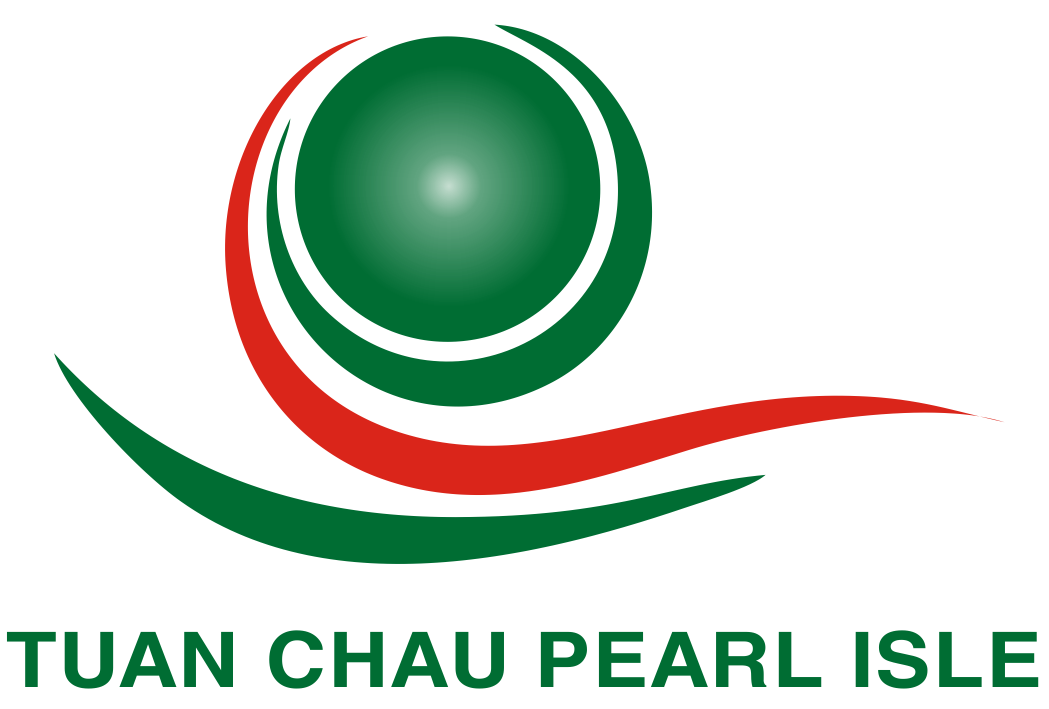



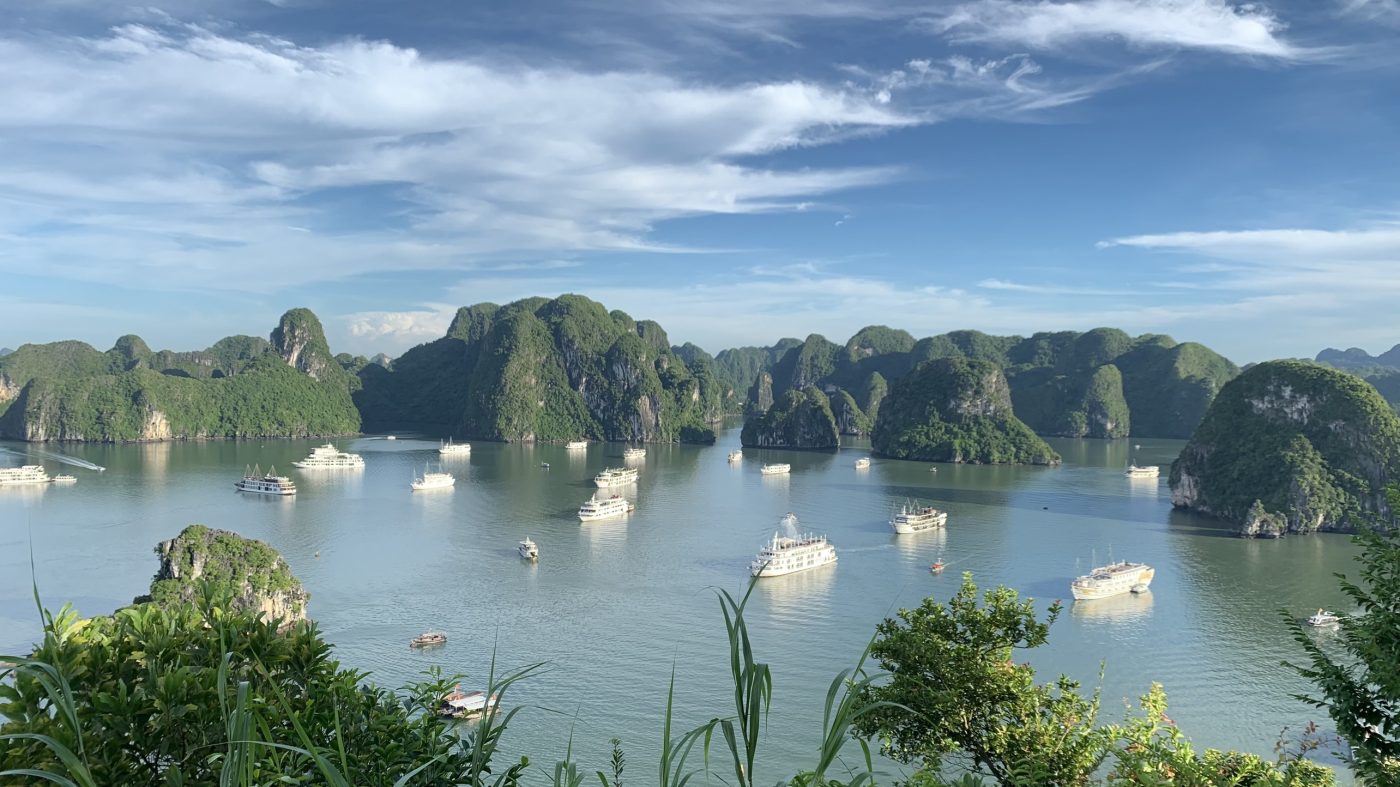
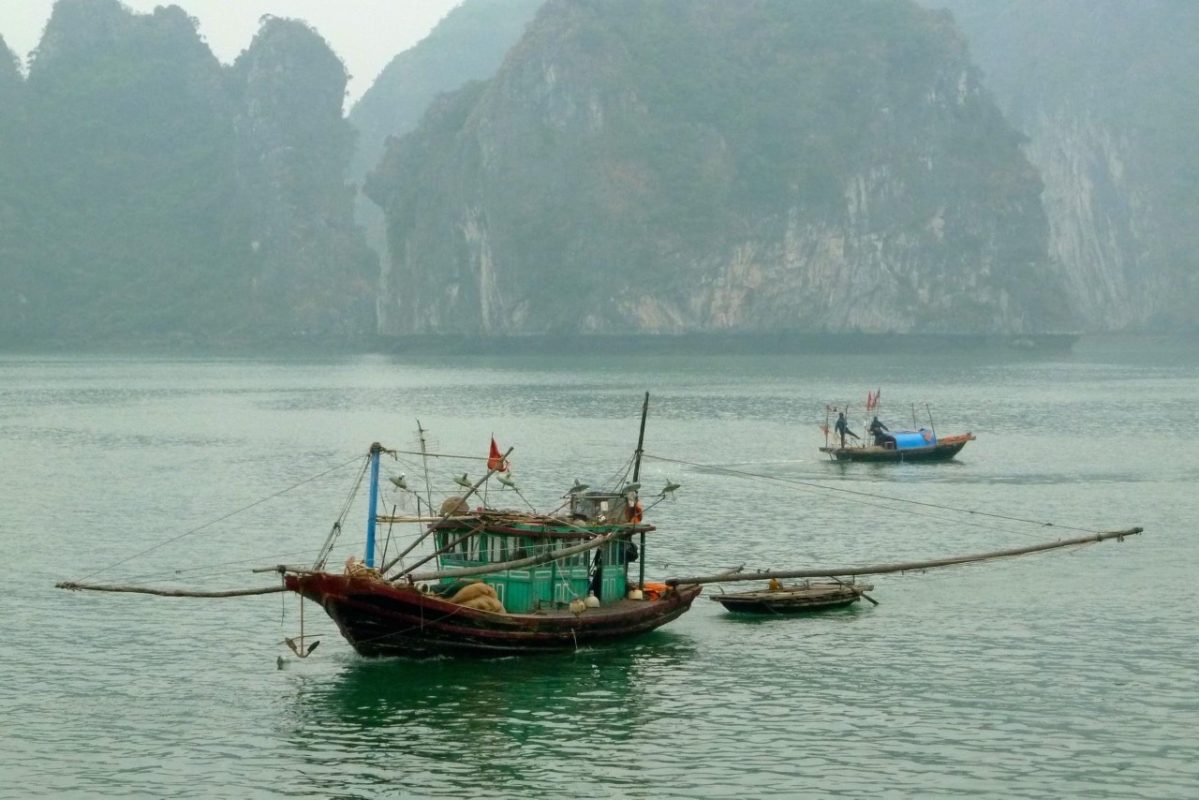
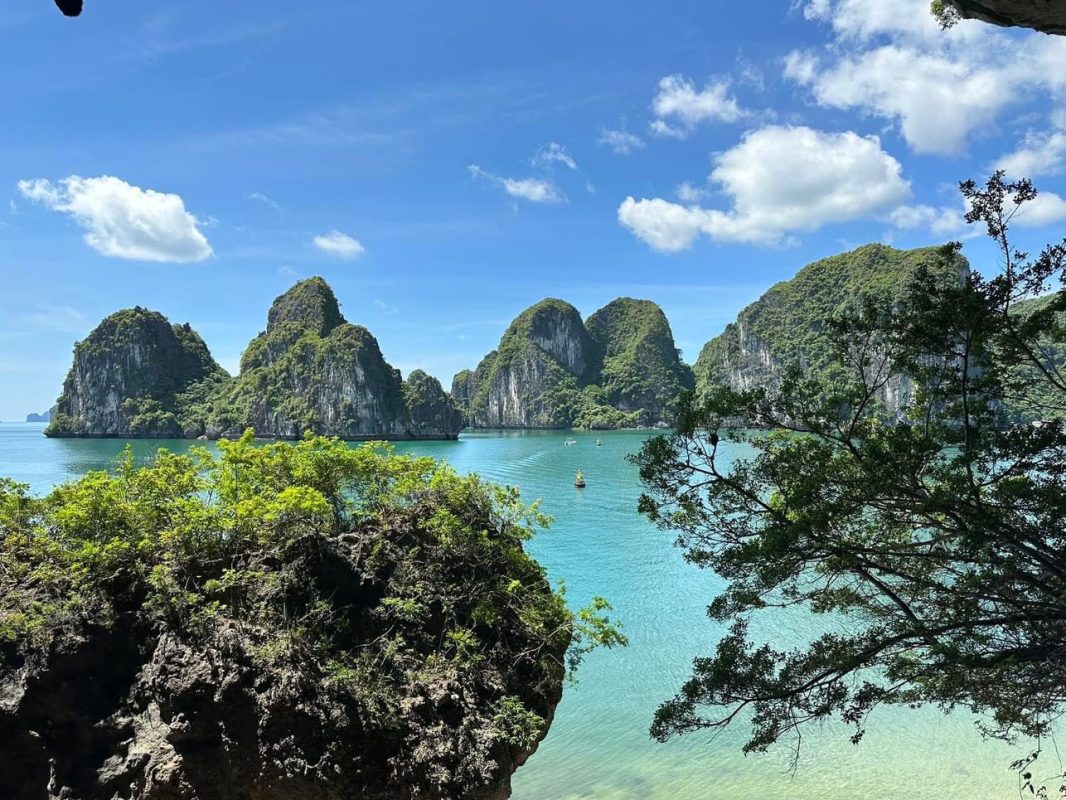
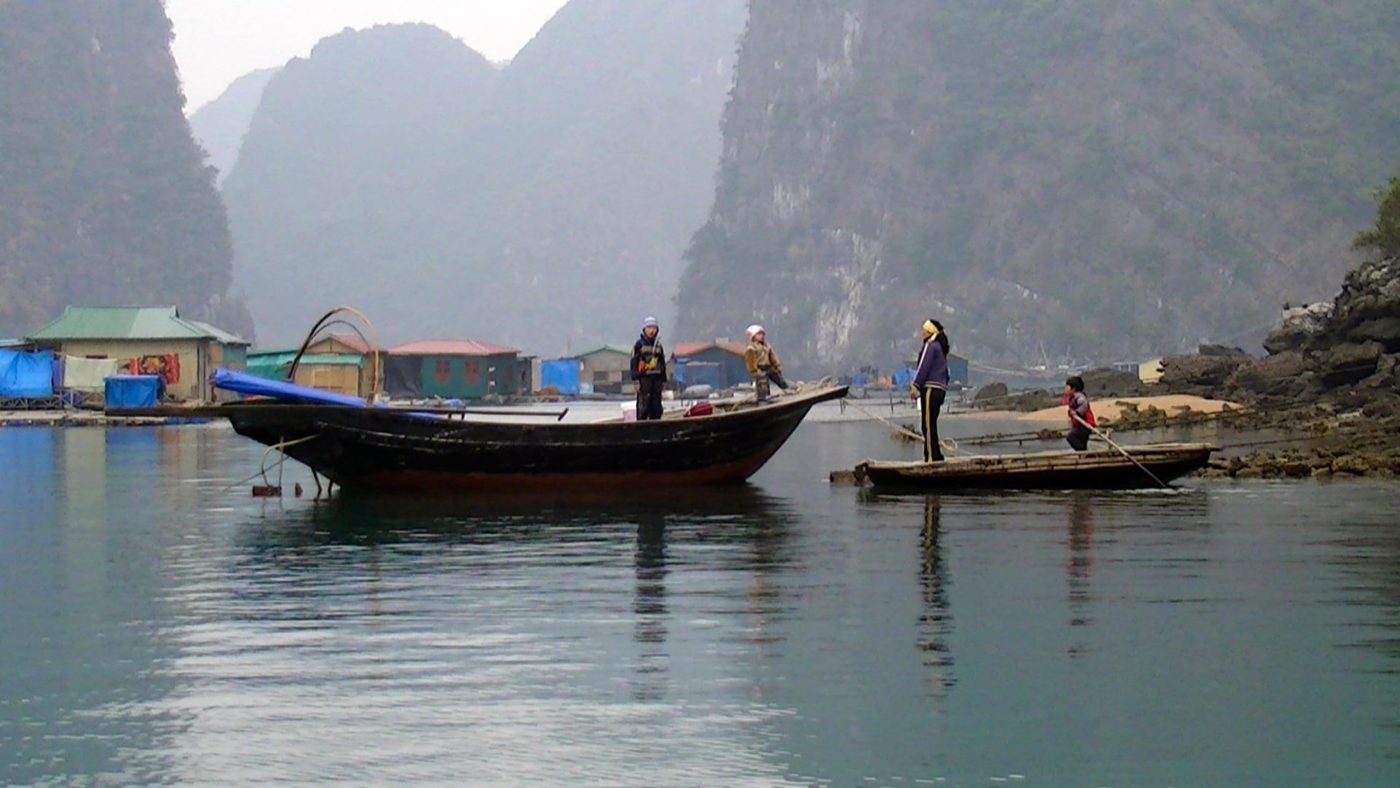
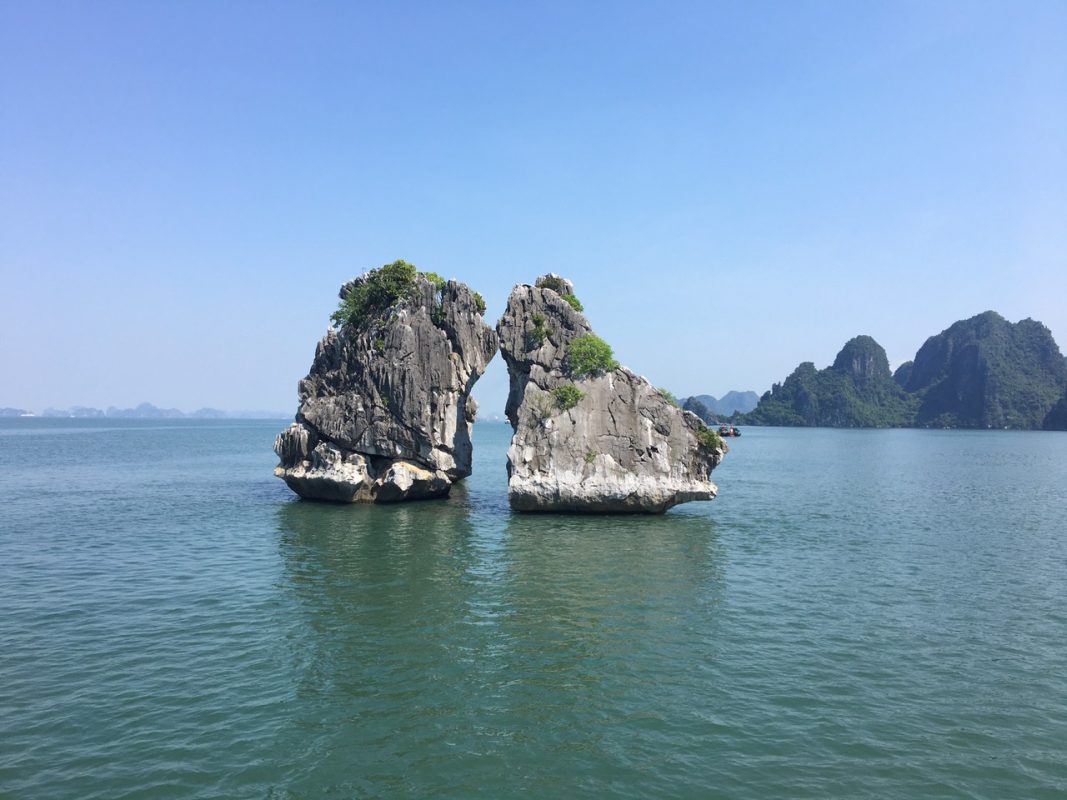
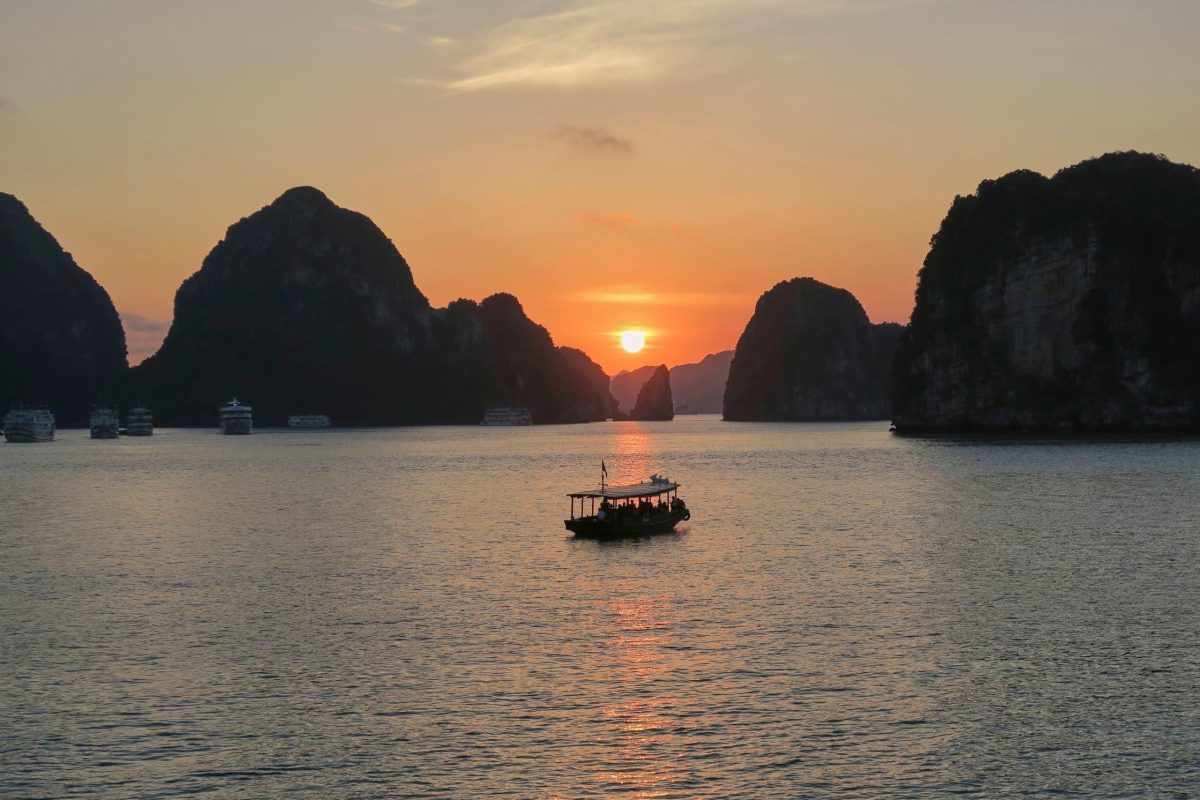
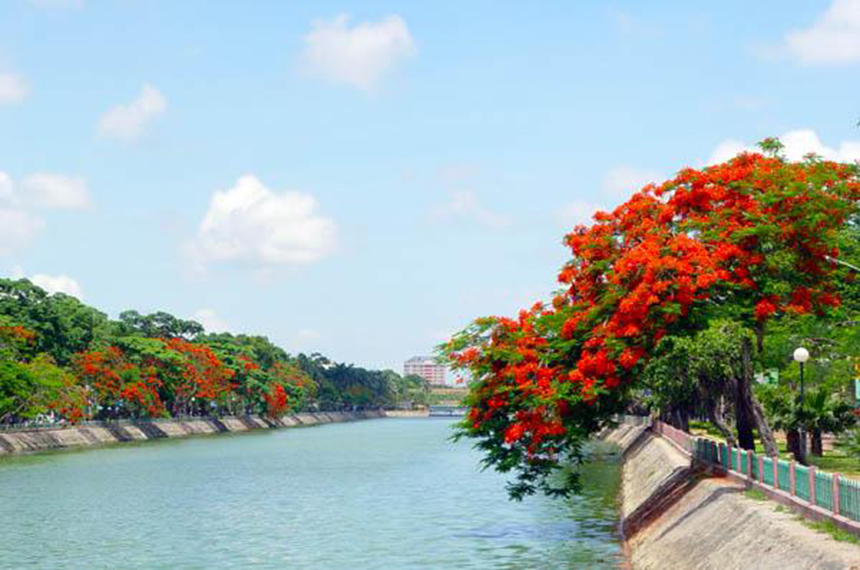
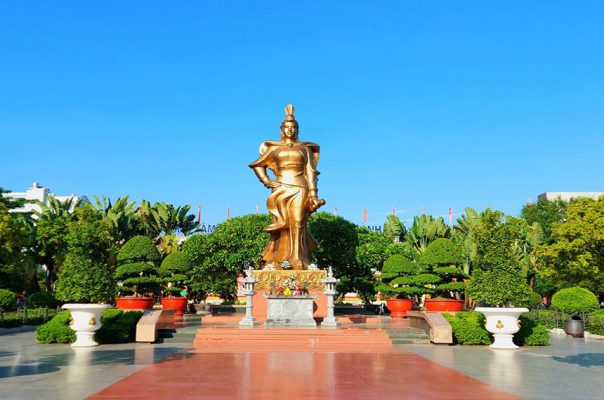
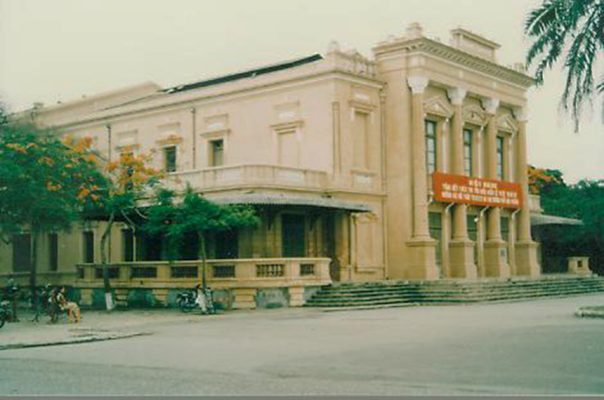
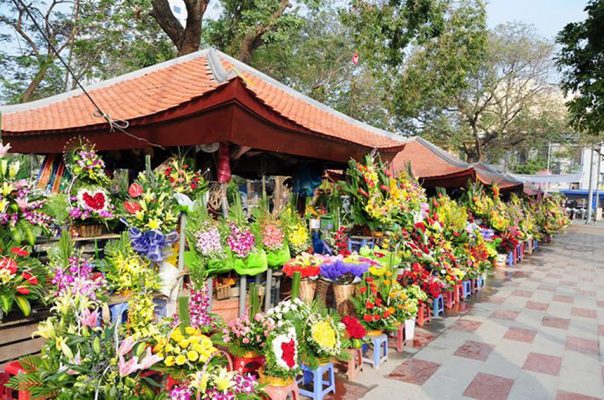
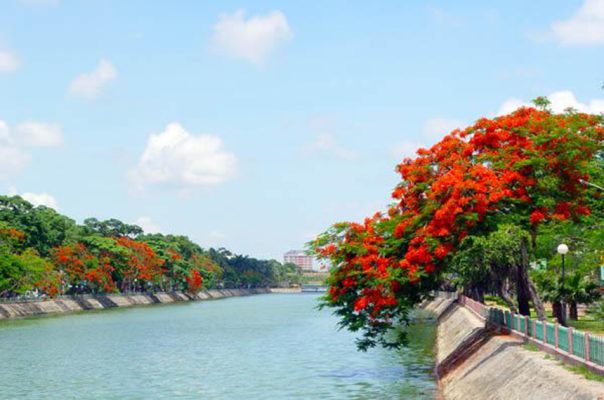
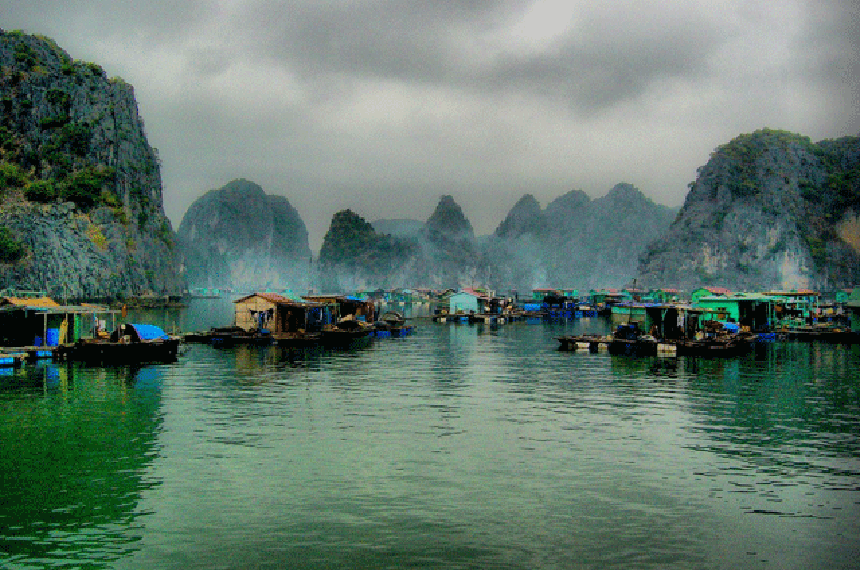
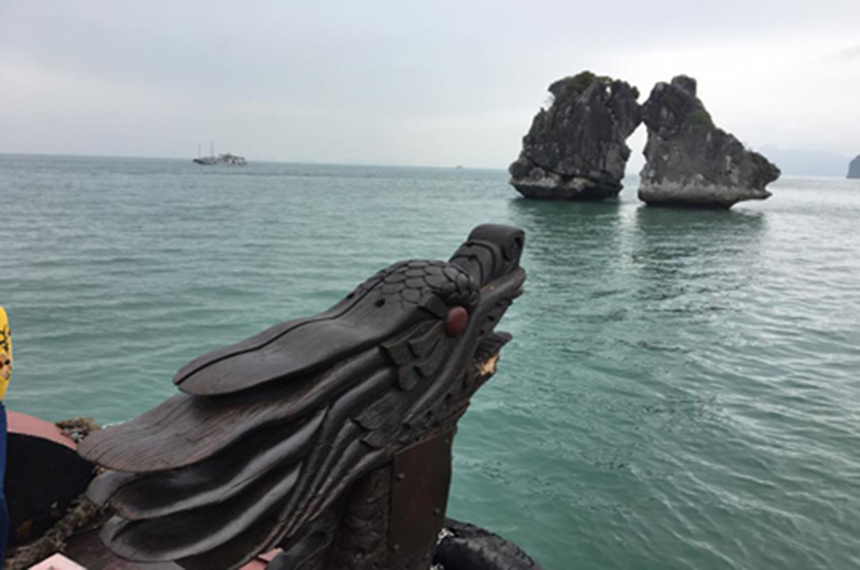
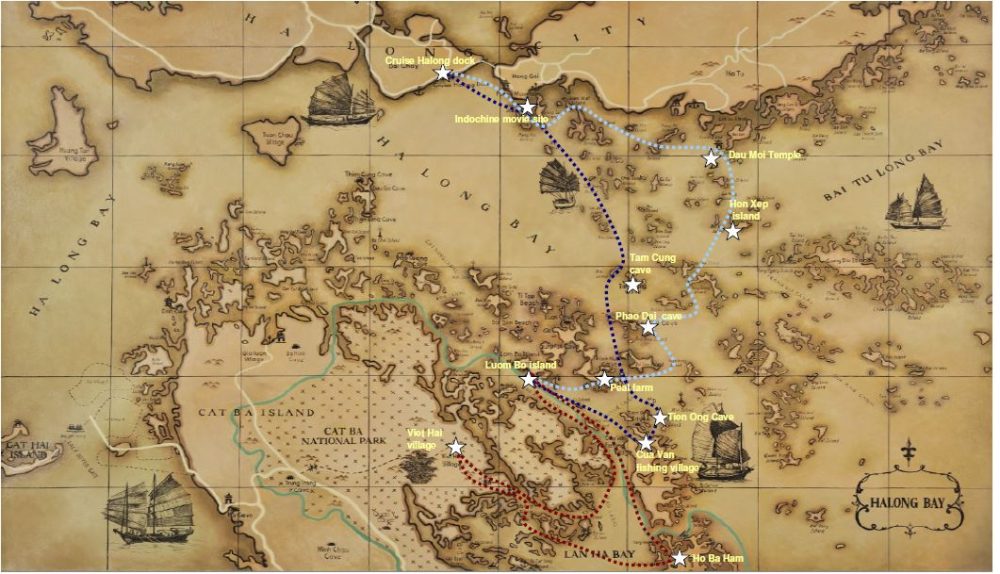

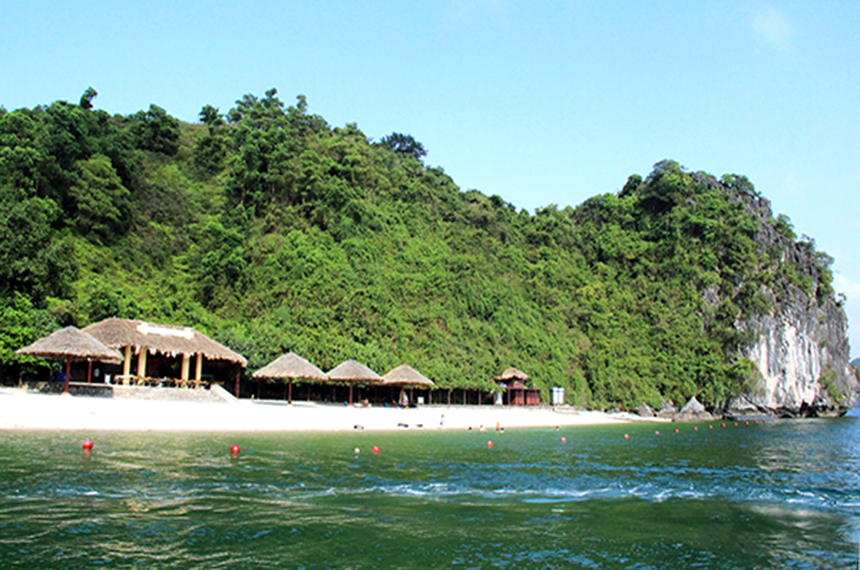
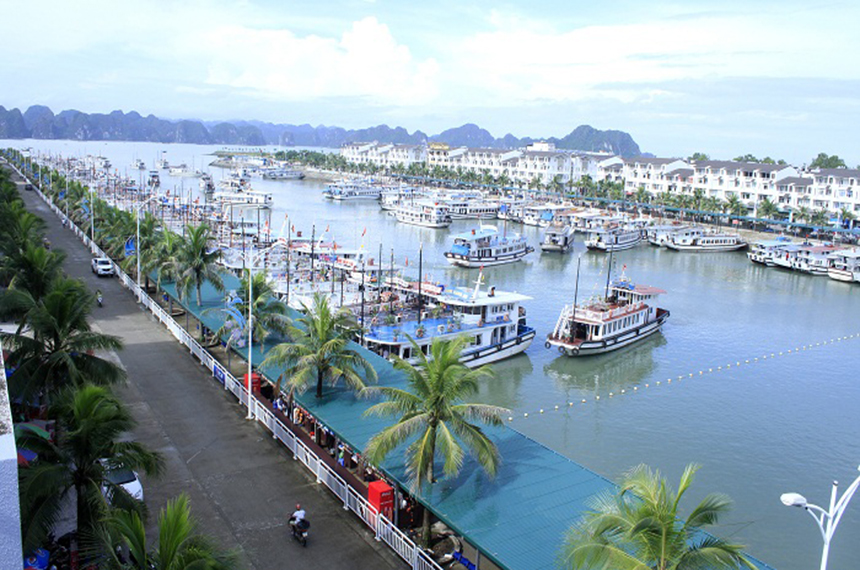
Đánh giá Things to do in Hai Phong, haiphongtours.vn